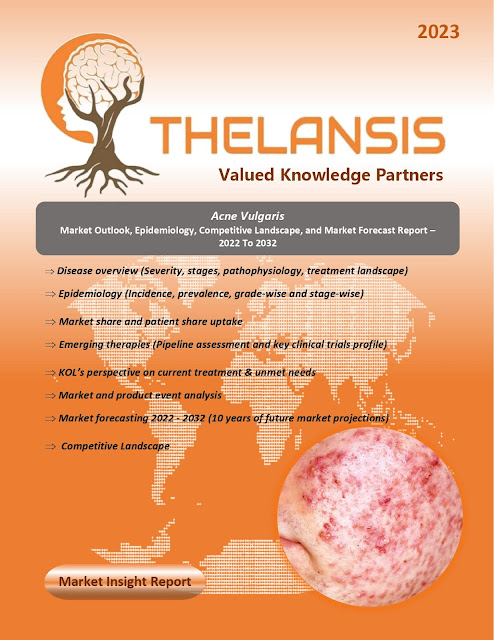Knee Osteoarthritis (OA) – Market Outlook, Epidemiology, Competitive Landscape, and Market Forecast Report – 2023 To 2033
Knee osteoarthritis (OA) is a common progressive joint disease that causes pain and disability. It is the most common form of OA, accounting for almost 4/5th of the global burden of the disease. Knee OA increases with age and obesity and is incurable except through knee arthroplasty, an effective treatment at an advanced stage of the disease but is responsible for substantial health costs. Knee osteoarthritis is characterized by chronic pain and functional disability. Pain results from inflammation and damage to the joint, including thickening of the joint capsule and the formation of osteophytes (bone spurs). A study found that 43.3% of people reported having pain, aching, or stiffness in a knee joint on most days. The prevalence of pain increased with age, from 34.2% in people aged 45 to 54 years to 56.6% in people aged 75 years and older. No drugs currently approved can prevent, stop, or even slow the progression of OA. The available medications that promise to mitigate the pain of OA have several risk/benefit considerations. For example, non-steroidal anti-inflammatory drugs (NSAIDs) have been associated with a clinically relevant 50-100% increase in myocardial infarction or cardiovascular death risk.
·
The global prevalence of knee OA was 16.0% in
individuals aged 15 and over and 23.2% in individuals aged 40 and over. This
means that one in six people over 15 worldwide has knee OA. The Knee
osteoarthritis prevalence is higher in women than men and increases with age.
Thelansis’s
“Knee Osteoarthritis (OA) Market Outlook, Epidemiology, Competitive Landscape,
and Market Forecast Report – 2023 To 2033" covers disease overview,
epidemiology, drug utilization, prescription share analysis, competitive
landscape, clinical practice, regulatory landscape, patient share, market
uptake, market forecast, and key market insights under the potential Knee
Osteoarthritis (OA) treatment modalities options for eight major markets (USA,
Germany, France, Italy, Spain, UK, Japan, and China).
KOLs insights of Knee Osteoarthritis
(OA) across 8 MM market from the centre of Excellence/ Public/ Private
hospitals participated in the study. Insights around current treatment
landscape, epidemiology, clinical characteristics, future treatment paradigm,
and Unmet needs.
Knee
Osteoarthritis (OA) Market Forecast Patient Based Forecast Model (MS.
Excel Based Automated Dashboard), which Data Inputs with sourcing, Market
Event, and Product Event, Country specific Forecast Model, Market uptake and
patient share uptake, Attribute Analysis, Analog Analysis, Disease burden, and
pricing scenario, Summary, and Insights.
Thelansis Competitive Intelligence (CI) practice
has been established based on a deep understanding of the pharma/biotech
business environment to provide an optimized support system to all levels of
the decision-making process. It enables business leaders in forward-thinking
and proactive decision-making. Thelansis supports scientific and commercial
teams in seamless CI support by creating an AI/ ML-based technology-driven
platform that manages the data flow from primary and secondary sources.
Tags: Knee
Osteoarthritis (OA), Knee Osteoarthritis (OA) market
outlook, Knee Osteoarthritis (OA) competitive
landscape, Knee Osteoarthritis (OA) market
forecast, Thelansis, Primary market research, KOL insights, Competitive
Intelligence (CI)




Comments
Post a Comment